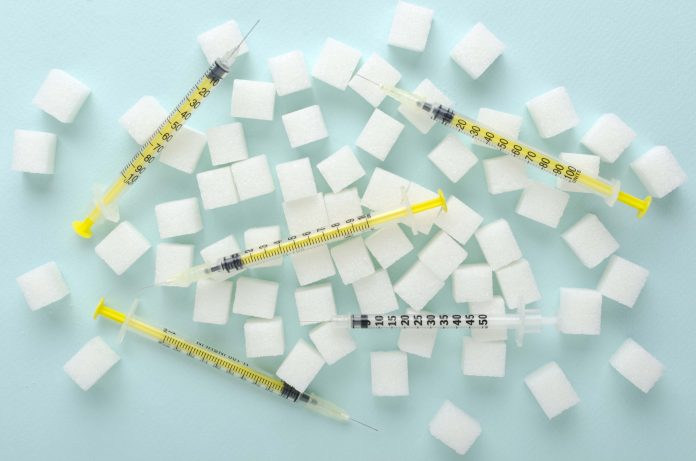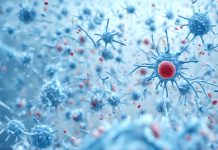Imagine a life without insulin: Research is bringing us closer to a cure and could change the lives of diabetes patients
Despite its global impact, there is still no cure for diabetes. But there is hope! All over the world, new therapies that offer the promise to delay and improve the quality of life for patients with Type 1 Diabetes (T1D) are being investigated. Disease experts Prof Chantal Mathieu, Coordinator at T1D consortium INNODIA and Principal Investigator of the Imcyse IMPACT Phase 2 trial, and Patient Advisory Committee (PAC) members represented by Manon Perquy talk here about the needs of patients and how new approaches, such as immunotherapies, can change the landscape for T1D and what needs to be done to make this a reality.
Over 100 years ago, diabetes became treatable. And for most of the 9 million adolescents and adults worldwide (1), living with T1D, insulin turned the disease from a death sentence into a chronic condition. Still, it is not a cure.
In T1D, the insulin-producing beta cells in the pancreas are destroyed through an autoimmune attack, making patients dependent on daily glucose control and insulin injections for life. Even with modern technologies, controlling blood glucose levels to a level that will eliminate complications, such as organ damage caused by high blood sugar remains unachievable for most patients.
“T1D is a very heterogeneous disease. Blood sugar levels are affected by much more than just what we eat and how much we exercise. There are a multitude of factors to consider – everyone reacts differently. No two patients are alike,” says Manon and the PAC members. “This is what makes management of this disease so hard and why only a small fraction, around 30%, actually reach their treatment goals.”
The fear of not managing T1D adequately stems from immediate risks, such as hyperglycaemia or hypoglycaemia and serious long-term consequences. Patients need to self-manage their disease round-the-clock – which is a huge burden on them, their families, and caregivers. “It is a 24/7 balancing act. Insulin helps people survive, but it is not enough,” explains Manon and the PAC members.

Urgent need for new advancements
Although important technological advances in the management of T1D have occurred in the past 40 years, most of the research has focused on developing better delivery and optimised insulin: long-, short- and ultra-rapid-acting insulins to better match the varying time-action needs, as well as insulin pumps and hybrid closed-loop systems for better control. This leaves an urgent need for new advances that can replace daily injections and give people a break from constant monitoring. “Even though we have better tools today, the burden and impact on the quality of life of people living with T1D remains enormous. What we urgently need is innovation, which reduces the number of times a day, patients must think about their disease,” says Manon and the PAC members.
“The problem is that despite extensive research, the underlying causes and mechanisms of T1D are still far from being completely understood. This is why effective prevention strategies or causal therapies beyond insulin replacement are still lacking and treatment efforts to halt progression of the disease are to date unsuccessful,” adds Prof Chantal Mathieu.
Approaching a paradigm shift in T1D – immunotherapy
However, there is hope for potentially making insulin treatments obsolete. Researchers from all over the world have come a long way in recent years investigating alternative therapy options that offer the promise to delay T1D onset and improve life for patients.
“There has always been an enormous enthusiasm among researchers to try and find better ways to predict and prevent T1D but also to arrest the progression of the disease because we as clinicians see what a terrible disease it is,” says Prof Mathieu. “One promising approach are immunotherapies that target the underlying cause of the disease by reprogramming the immune system so that it no longer attacks and destroys insulin-producing beta cells in the pancreas.”
IMPACT trial: A unique opportunity for adult patients run by leading EU experts
Among the four interventional trials currently being conducted under the INNODIA umbrella, the ImotopeTM approach, developed by Belgian company Imcyse, is one such immunotherapeutic being investigated in a Phase 2 study (IMCY-0098 Proof of ACtion in Type 1 Diabetes, IMPACT). ImotopesTM are based on modified peptides that induce cytolytic CD4 T cells to kill other immune cells involved in the destruction of a specific target, in this case, insulin-producing cells in the pancreas. This action works without affecting other functions of the immune system. Prof Mathieu explains the approach: “The aim of this approach is to interfere early enough in the disease progression, so the aberrant immune response is halted. The immune system is recalibrated to stop the destruction of beta-cells and block the autoimmune response. Through this intervention, the pancreas maintains its natural ability to produce insulin and the rest of the immune system continues to function fighting infections. It is a very interesting, different approach and the safety profile we have seen so far is very impressive.” A more detailed description of Imcyse’s technology is available in a previous article. (2)
Moving research forward – solving the mysteries of T1D together
To advance their immunotherapy as a safe and effective therapy for patients with early T1D, Imcyse has joined forces with INNODIA, gaining access to a broad supportive research network. “To really make a difference, everyone needs to work together,” says Prof Mathieu. “Newly diagnosed patients need to get the opportunity to participate in these studies, clinicians need to inform their patients about ongoing intervention trials, companies need the patient perspective, there is this aspect of public funding and the industry side. This is why networks such as INNODIA are so important.”
A life without daily insulin: What could the future look like for patients?
In the future, immunotherapies could help patients and those at risk of developing T1D, by stopping the disease in its tracks or preventing the condition entirely. For the latter, early intervention could prevent the immune attack from happening in the first place. In newly diagnosed patients, immunotherapy has the potential to stop the attack in its tracks and preserve surviving beta cells. In addition, researchers are currently working on manufacturing new beta cells in the lab to transplant into patients. To protect these “new” beta cells from the body’s immune system, immunotherapies will play an important part.
“We may not be able to remove T1D from our lists of human ailments just yet, but what is most important is getting the news out to newly diagnosed patients and their families, that there are opportunities to join the research and ultimately help change the future of T1D,” conclude Manon and the PAC members.
To learn more about T1D and for further information on clinical trials currently ongoing and how to get involved, please visit: INNODIA or T1D UK Consortium.
For more information about INNODIA please visit: https://www.innodia.eu/
References
- https://www.who.int/news-room/fact-sheets/detail/diabetes
- https://www.openaccessgovernment.org/imcyse-presents-imotopes-autoimmune-disease-treatment/88152/
*Please note: This is a commercial profile
© 2019. This work is licensed under CC-BY-NC-ND.








